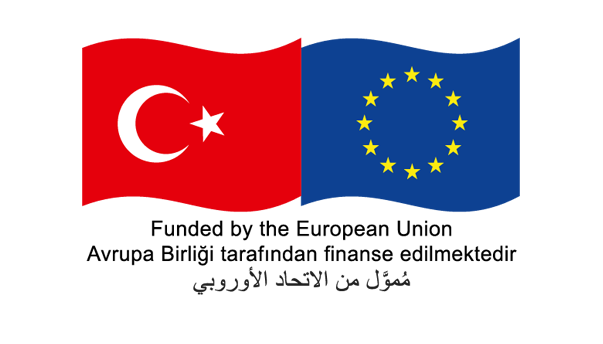Glossary
We have prepared a social entrepreneurship glossary for those who want to be involved in the discussions in the social entrepreneurship ecosystem and contribute to this field.
Pitching Speech: The speech you need to make shortly and effectively to explain your enterprise to the person/potential investor. The pitching speech should last between 30 seconds and 1 minute, it should be a short speech that introduces you and your enterprise and demonstrates the benefits of the enterprise.
B-Corp: An action and certification system developed for companies that define the success criteria in the business world in a different way, in which manage their financial and non-financial values sustainably, and demonstrate the value they create for all their stakeholders.
Theory of Change: A tool to understand and explain how and why a desired change will occur under certain conditions. First of all, long-term goals and desired results are determined. Then the steps and activities that need to be taken to achieve these results are determined. Unlike the logic framework approach, it helps to see the conditions from the larger framework and evaluate different aspects.
Association: Groups of persons with legal entities are formed by continuously combining the knowledge and work of at least seven natural and legal entities in order to realize a common purpose other than profit sharing.
Cooperative: Autonomous organizations formed by people voluntarily coming together to meet their common economic, social, and cultural needs and aspirations through a jointly-owned and democratically-controlled enterprise.
Entrepreneurial Philanthropy: A specific type of finance developed to provide social benefit beyond making a profit. Entrepreneurial philanthropy organization or social investor uses one or more different financial instruments such as grants, debt, and shares to support social enterprises and socially oriented enterprises. Institutional support is also provided for skill development, process, and structure improvement to ensure the durability and sustainability of the enterprise. Measurement is made to optimize social impact.
Accelerator program: Programs that support startups in a specific field or subject (eg internationalization, preparing for investment, scaling) in a few weeks or months to go faster than they would with their normal rhythms. Within the framework of these programs, services such as the use of space, mentoring, networking, and investor interviews are offered.
Grant: Funds that are given to natural and legal entities such as entrepreneurs, businesses and NGOs for the realization of certain purposes and which are not requested to be repaid funds. In Turkey, grants are generally given by public institutions, international organizations and foundations, in some cases.
Loan: Funds that are required to be repaid within a specified period of time, usually at a predetermined interest rate, given by financial institutions or government agencies for individuals and businesses.
Incubation center: Centers that offer entrepreneurs a common working space and provide capacity building and support services such as consultancy, mentoring and networking for the development of business models, etc.
Social Finance: A type of financing for a social purpose and for the purpose of creating social effects and where at least the principal is expected to be paid within a certain period of time.
Impact Investing: A type of investment that aims to contribute to the solution of social and environmental problems as well as make a financial profit. In this type of investment, it is essential to measure and report the impact of the investment and to ensure transparency and accountability.
Patient Capital: An investor makes a financial investment without the expectation of making a quick profit.
Social Impact Bonds: A financial instrument that allows the government to contract with a private sector financing intermediary to purchase social services and pay them based on whether the organization achieves its performance targets.
Social Business: A business that aims to solve social problems by developing a service, product or model and uses its profits for its social purpose.
Evergreen funding: A slow transfer of capital to a new or existing business. The business makes short-term and low-risk investments until it is ready for use for its operations. Each time the capital is transferred, the maturity date is adjusted so that the business does not make its first payment with debt.
Sustainable Development Goals - Global Goals: Goals set to be achieved by 2030 with global cooperation to eradicate poverty, protect the planet and ensure that all people live in peace and prosperity. Under the coordination of the United Nations Development Program UNDP, the problem areas for which solutions are sought with the cooperation of many countries, communities, companies, non-governmental organizations and citizens overlap with the problem areas of social entrepreneurs.
Foundation: A collection of assets formed by natural or legal entities assigning sufficient goods and rights to a specific and permanent purpose. These legal entities and non-profit organizations are established and operate in accordance with the Turkish Civil Code. It is possible to carry out activities related to social entrepreneurship and social innovation through foundations.
SROI- Social Return on Investment: A social impact measurement method used to measure the return on investments in social enterprises and socially oriented businesses. Returns on investment are measured in terms of social, environmental and economic outcomes and correlated with relevant monetary values. For example, a 3:1 SROI indicates that an investment of 1 TL generates 3 TL of social value.
Makerspace: Makerspace, which became widespread with the 'Do It Yourself' movement, is a production-oriented collaborative workspace that supports individuals to discover and develop their production skills, and where communication networks and collaborative working culture are prioritized.
Design Thinking: Design Thinking is a methodology that is not limited to certain fields or sectors, is based on understanding and solving complex problems, and makes people use curiosity, empathy and creativity in a beneficial way while producing innovative solutions.


